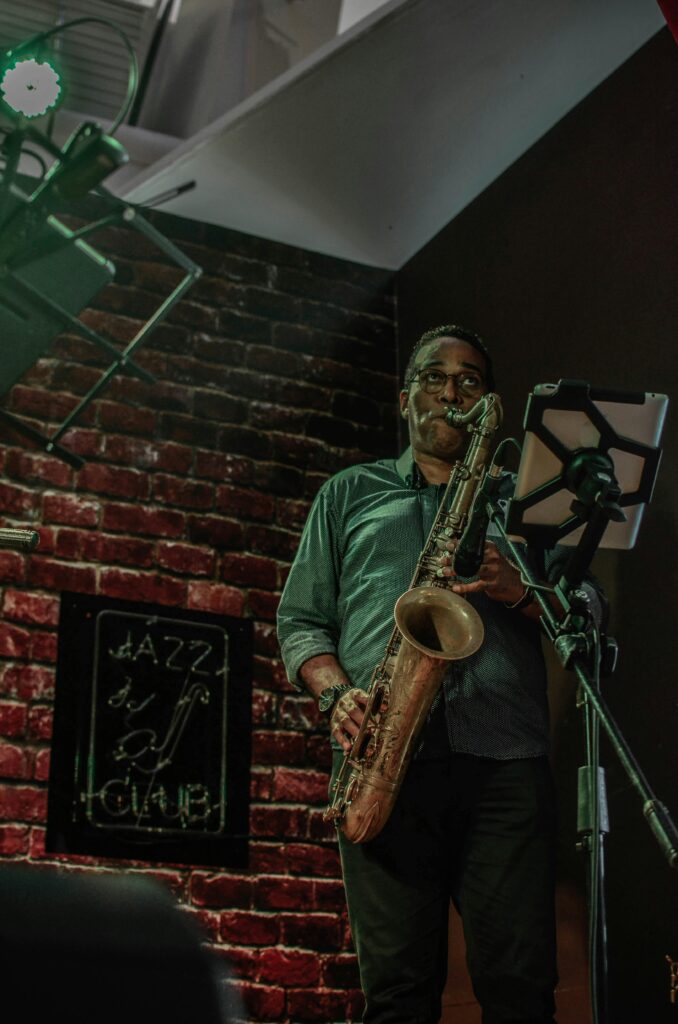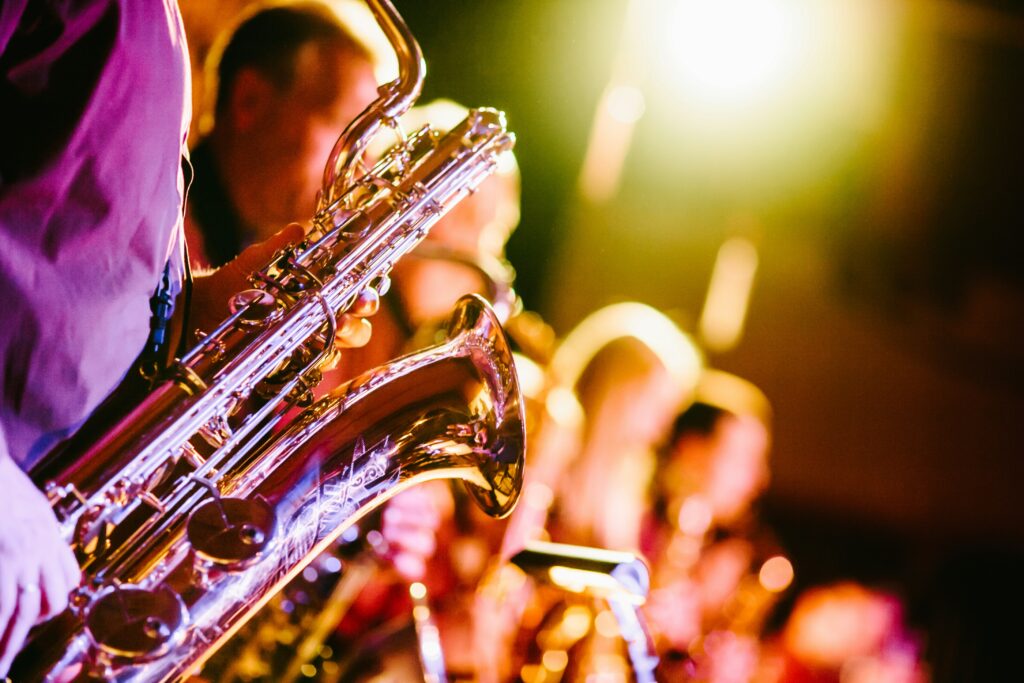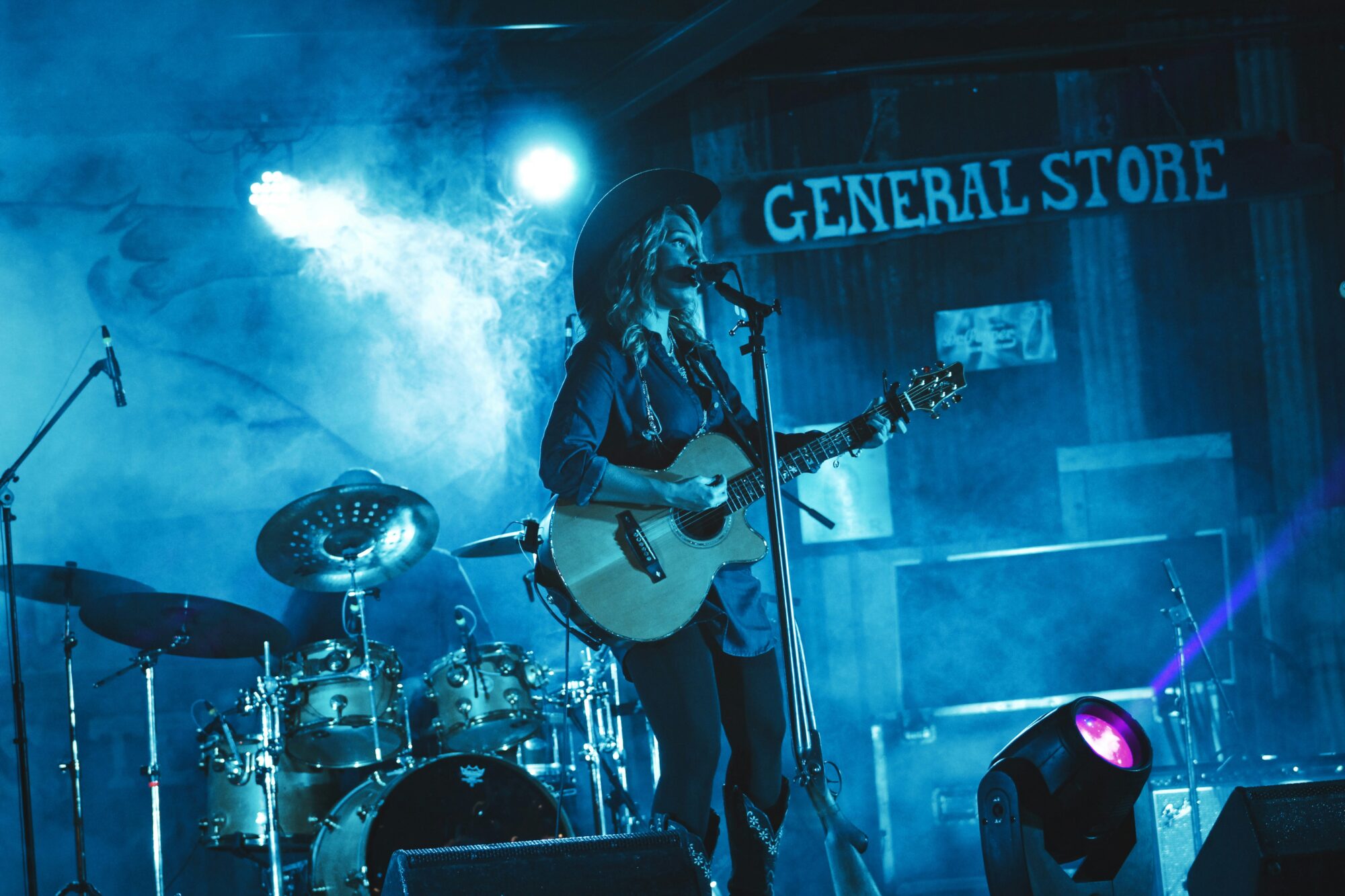Disclaimer: Before embarking on your journey, remember: that obtaining visas, managing travel documents, understanding currencies, and navigating time zones are your responsibility. Ensure thorough planning to enjoy a seamless adventure. Always consult official sources to prepare adequately for your travels.
Looking for the perfect travel gear to enhance your adventures? Check out our curated reviews and recommendations:
We’ve handpicked these items to make your journeys smoother, more enjoyable, and unforgettable. Explore the links to find the best deals and trusted products, and support our blog while upgrading your travel game!
Introduction to the Melodic Mosaic of America
The United States of America is not just a melting pot of cultures but also a vibrant mosaic of musical genres. From the heart-wrenching ballads of country music in Nashville, Tennessee, to the soulful rhythms of jazz in New Orleans, Louisiana, the music scene in the USA is as diverse as its landscape. This exploration into the rich musical heritage of America will take you on a journey through its most iconic music cities, revealing how each has contributed to the tapestry of American music history.
Nashville, Tennessee: The Heartbeat of Country Music
Nashville, affectionately known as “Music City,” is synonymous with country music. The city’s musical journey began in the 1920s, and since then, it has been the launching pad for some of the genre’s most legendary artists, including Johnny Cash, Dolly Parton, and Hank Williams. Nashville’s significance in the music world is not just historical; it continues to be a thriving center for music production, particularly country music.
The epicenter of Nashville’s music scene is the Grand Ole Opry, a weekly country music stage concert that has been broadcast on radio since 1925. It’s a must-visit for music enthusiasts, offering a unique glimpse into the heart and soul of country music. The Opry showcases a mix of legends and contemporary artists, reflecting the genre’s evolution over the years.
Another landmark is the Country Music Hall of Fame and Museum, which houses a vast collection of artifacts and exhibits that tell the story of country music’s origins and its journey through the decades. From Elvis Presley’s gold Cadillac to Carrie Underwood’s stage outfits, the museum provides a comprehensive overview of the genre’s influence and its stars.
The city’s vibrant music scene extends beyond these institutions. Nashville’s Broadway Street is lined with honky-tonks and bars where live music is the main attraction. Artists perform nightly, offering visitors an authentic taste of Nashville’s music culture. It’s here, among the neon lights and the strumming guitars, that you can feel the true spirit of Nashville.
The Influence of Country Music on American Culture
Country music’s themes of love, loss, and hardship resonate with the American spirit, making it a significant cultural force. Its storytelling nature reflects the life experiences of many Americans, from rural beginnings to the challenges of modern life. Nashville has played a pivotal role in shaping this genre, influencing not just the music industry but also American culture at large.
Country music also has a significant economic impact on Nashville, attracting millions of tourists each year eager to experience its musical heritage. The city’s music festivals, such as the CMA Music Festival, draw fans from all corners of the globe, showcasing Nashville’s enduring appeal as the heart of country music.
As we journey from Nashville’s country roots, our musical road trip will next take us to the sultry streets of New Orleans, where jazz music reigns supreme. The contrast between Nashville’s country twang and New Orleans’ jazz rhythms illustrates the rich diversity of America’s music scene. Stay tuned for the next installment, where we’ll dive into the heart of jazz in New Orleans.

New Orleans, Louisiana: The Birthplace of Jazz
As we venture down the Mississippi River from Nashville, we arrive in New Orleans, a city pulsating with the rhythms of jazz. Known as the birthplace of this quintessentially American music genre, New Orleans boasts a musical legacy that is as colorful and dynamic as the city itself. Jazz emerged in the late 19th and early 20th centuries, a vibrant fusion of West African rhythms, European harmonics, and blues, mirroring the city’s multicultural heritage.
The Vibrant Venues of New Orleans’ Jazz Scene
The heart of New Orleans’ jazz scene beats in the French Quarter, especially on the famous Bourbon Street and the more local-focused Frenchmen Street. These areas are alive with music clubs and bars where jazz notes float through the air, inviting passersby to step in and experience the magic. The Preservation Hall, a modest venue established in the 1960s, stands as a testament to the city’s dedication to preserving traditional New Orleans jazz. Here, visitors can enjoy intimate performances by some of the genre’s most respected musicians in an atmosphere that feels like a step back in time.
Another iconic institution is the New Orleans Jazz & Heritage Festival, an annual celebration of the city’s music, culture, and spirit. This festival attracts musicians and music lovers from around the world, featuring performances that span jazz, blues, R&B, gospel, and more, showcasing the rich tapestry of sounds that New Orleans has inspired.
Jazz: More Than Music, A Cultural Legacy
Jazz is more than just a music genre in New Orleans; it’s a way of life. It plays a pivotal role in the city’s cultural celebrations, most notably Mardi Gras, where brass bands march in parades, filling the streets with the lively beats of jazz and other local sounds. The music’s improvisational nature reflects the city’s ethos of creativity and resilience, themes that have defined New Orleans through its history of joy and adversity.
The influence of New Orleans jazz extends far beyond its origins, shaping musical genres worldwide. Its improvisational style has infiltrated blues, rock, and even pop music, demonstrating jazz’s enduring legacy and its role in the evolution of music.
Educational and Cultural Impact of Jazz in New Orleans
New Orleans has nurtured generations of musicians, contributing significantly to the global jazz scene. Institutions like the New Orleans Center for Creative Arts provide young artists with the training to continue the jazz tradition, ensuring its survival for future generations. The city’s music education programs emphasize the importance of jazz not just as a musical style but as a cultural heritage that carries the stories and emotions of its people.
As we soak in the vibrant sounds and sights of New Orleans’ jazz scene, it’s clear that the music here is more than entertainment—it’s a celebration of life itself. Jazz has become synonymous with New Orleans, embodying the city’s spirit of diversity, resilience, and creativity.

The Diverse Soundscape of American Music
Our exploration of the music scene in the USA has taken us from the heartstrings of Nashville’s country music to the soulful embrace of New Orleans jazz. But the musical journey doesn’t end there. The United States, with its vast and varied landscape, is home to an array of music genres, each with its own unique history and cultural significance. From the blues of the Mississippi Delta to the hip-hop beats of New York City, American music is a reflection of the nation’s diverse cultural heritage and historical experiences.
The Universal Language of American Music
American music has always been more than just a source of entertainment. It’s a medium for storytelling, a form of protest, and a celebration of life. The stories told through country, jazz, blues, rock, hip-hop, and other genres are deeply connected to the American experience. They speak of love, struggle, triumph, and the pursuit of freedom, echoing the diverse voices of the American people.
One of the most remarkable aspects of American music is its ability to cross-cultural and geographical boundaries. Jazz and country, for example, have found audiences worldwide, influencing music scenes in countries far from their origins. This global reach underscores the universal appeal of these genres and their ability to connect people across different cultures and experiences.
Fostering Unity and Celebrating Diversity
Music has the power to bring people together, and in the United States, it has played a crucial role in bridging cultural divides. Festivals and concerts often feature artists from various genres, reflecting the nation’s multicultural fabric. These events are not just celebrations of music but of unity and diversity, showcasing the rich tapestry of American culture.
The influence of American music on social movements cannot be understated. From the civil rights movement to contemporary social justice campaigns, music has served as a rallying cry, a source of comfort, and a call to action. Songs from artists across all genres have captured the spirit of their times, inspiring change and reflecting the nation’s ongoing journey toward equality and justice.

Don’t miss our Traveler’s Tips and Photography Tips for expert advice, gear recommendations, and tricks to capture stunning travel memories. Explore now and level up your adventures!
Conclusion: The Enduring Legacy of American Music
As we conclude our journey through the music scene of the USA, it’s clear that the country’s musical heritage is as vast and varied as its landscape. From Nashville’s country to New Orleans’ jazz, American music tells the story of a nation’s past, present, and hopes for the future. It’s a legacy that continues to evolve, embracing new sounds and influences while staying rooted in its rich traditions.
The enduring appeal of American music lies in its ability to speak to the human condition, transcending time and place. Whether through the soulful lament of a jazz saxophone or the hopeful strum of a country guitar, these genres capture the essence of what it means to be American. They remind us that, despite our differences, we share common dreams, struggles, and joys.
As we look to the future, the music scene in the USA promises to remain a dynamic and vital expression of the nation’s heart and soul. It will continue to inspire, challenge, and unite us, proving that music is indeed the universal language of mankind. And so, the beat goes on, echoing the endless diversity and creativity of the American spirit.
